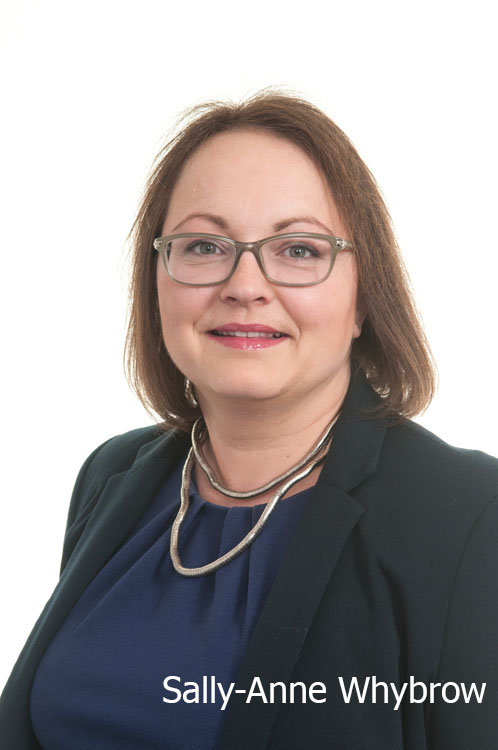However, this outsourcing relationship often raises financing and cash-flow challenges for CROs as they manoeuvre through the various phases of the drug delivery journey from preclinical and clinical research to trial management and pharmacovigilance.
On the one hand, notes Sally-Anne Whybrow, Healthcare Business Development Manager at Siemens Financial Services (SFS), large pharmaceutical companies require a CRO to be self-sufficient and manage the entire drug development process. On the other, small and emerging biotechs often need the support of smart financing resources and infrastructure to fuel sustainable growth.
Further pressures are also affecting the need for CROs to acquire the medical technology they require— at scale and at speed. Overall, growth in the CRO market in the UK and beyond is driven by the accelerated research practices linked to the COVID-19 response and the need to develop new medicines to treat and fight the increasing prevalence of chronic diseases and conditions.
Across the board, research activities and clinical trials relating to many chronic diseases and conditions were halted or delayed as researchers devoted their expertise and attention to the pressing need for a defence against COVID-19.
The industry was forced to respond to the twin challenges of restrictions on running clinical trials — owing to social distancing measures — and the very urgent need to deliver yet more trials, more efficiently than ever, to develop a COVID vaccine.

As such, the pandemic has not only affected the number of trials being conducted, it’s also impacted the way they’re designed and delivered. Faced with this contradictory challenge alongside the disruption of all the related processes (planning, feasibility, design, protocol, execution), CROs have been forced to rethink and reshape their approaches.
The result is an increase in hybrid models in which traditional clinics operate in parallel with decentralised trials and environments.2 Quite simply, hybrid clinical trials and remote patient monitoring have enabled uninterrupted trials during the sequential lockdowns and changing restrictions, as well as cost savings of 15–20%.3
As such, this more digital approach to the clinical process presents significant growth prospects for the CRO market.
And although the CRO market suffered disruption as a result of the pandemic, recovery is expected to be swift. This means that CROs of all sizes — but especially those in the development stage — need to rapidly scale their offering to respond to both the backlog of R&D work delayed by the pandemic and the now elevated standards for solution delivery driven by the rapid vaccine response.
As a result, the pace of future research is now expected to be higher with tighter deadlines; CROs will be required to react with total flexibility. This can only be achieved with access to digital ready and high-end clinical chemistry equipment, such as
- high-resolution mass spectrometers that can simultaneously quantify thousands of samples to enhance precision, depth and throughput
- flexible, scalable, automation-ready immunoassay and chemistry analysers, including PCR machines
- state-of-the-art centrifuge models to meet growing volume and turnaround requirements
- chemical reactors with programmable software and data logging capabilities.
As technological capabilities advance, projects are now being designed around the ability to easily scale-up and scale-down at different stages. Smart automation software is facilitating seamless scheduling, data collation and sharing, as well as improved safety and security measures.
Clearly, for research organisations to remain competitive and meet the heightened standards required for seamless drug delivery, significant investment in equipment, software and infrastructure will be necessary.
Although COVID has indisputably accelerated the pace of research, it has also delayed essential research into, and clinical trials for, other ailments and diseases.4 For CROs to get processes back on track and meet the heightened demand for their services, significant investment in high-end equipment and technology is required.
Many CROs — particularly those in the preprofit, post-revenue stages – are turning to smart finance to implement sustainable pathways to investment.
Smart financing — offered by specialist financiers — enables the acquisition of technology and equipment for competitive advantage in a way that is financially sustainable and tailored to the organisation’s specific business and cash-flow needs. Smart financing offers three major advantages compared with generalist finance:
- technology expertise that understands real business outcomes
- a breadth of financing solutions, which can meet every organisation’s exact needs
- smooth, sophisticated processes that make the use of smart finance seamless and easy.
Healthcare financiers who have an in-depth understanding of drug research and development technology and its applications can provide these tailored financing packages. SFS provides cost-effective financing solutions for a wide variety of equipment and technology, enabling organisations to acquire the solutions they need without having to commit precious capital budgets.
Drawing on a deep knowledge of the drug research and development sector, specialist financiers work with the CROs to flex finance periods and terms to align with strategic goals and outcomes.
References
- www.pwc.com/gx/en/pharma-life-sciences/pdf/pwc-pharma-outsourcing.pdf.
- www.outsourcing-pharma.com/Article/2021/09/28/CROs-facing-formidable-challenges-in-clinical-research-survey.
- www.frost.com/news/press-releases/post-pandemic-contract-research-organization-market-to-reach-63-83-billion-by-2024-says-frost-sullivan/.
- www.frontiersin.org/articles/10.3389/fmed.2020.598038/full.
